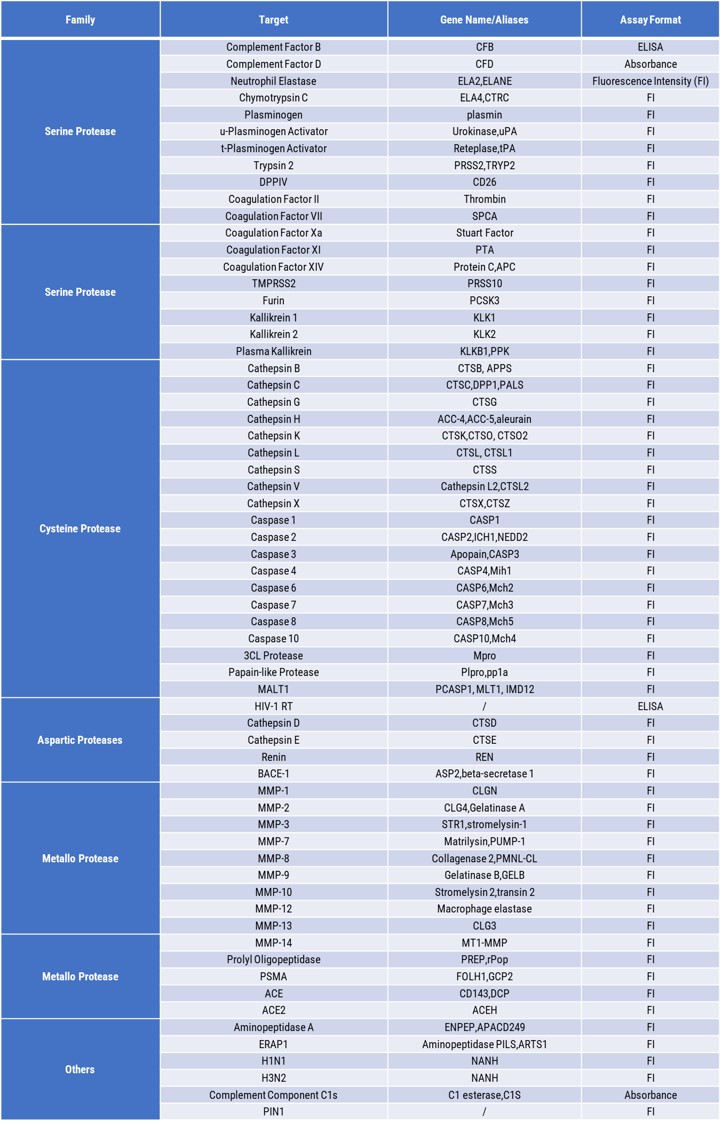Background: Proteases are essential enzymes that break down proteins by cleaving peptide bonds, playing a crucial role in various physiological processes, including digestion, immune response, and cell signaling. Dysregulation of protease activity is associated with numerous diseases, such as cancer, cardiovascular disorders, and neurodegenerative diseases. Because of their central role in disease mechanisms, proteases have become significant therapeutic targets, leading to the development of inhibitors that can modulate their activity.
Advancements in Protease-Targeted Drug Development: Recent years have witnessed substantial progress in the development of protease inhibitors, with several drugs successfully reaching the market. These advancements are driven by a better understanding of protease structure and function, as well as innovations in drug design and screening technologies. However, the development of specific and effective protease inhibitors remains challenging due to the complexity of protease families, substrate specificity, and the need to avoid off-target effects.
Challenges and Prospects: One of the primary challenges in protease research is the accurate measurement of enzyme activity, which is critical for the identification and validation of potential inhibitors. Traditional assays often struggle with sensitivity and specificity, making it difficult to distinguish between the activities of closely related proteases or to detect low levels of activity. Additionally, the dynamic nature of protease regulation in different physiological contexts requires methods that can provide real-time insights into enzyme function.
Our Solution: Our service leverages a combination of advanced techniques, including Fluorescence Intensity (FI), absorbance-based assays, and Enzyme-Linked Immunosorbent Assay (ELISA), to deliver precise and reliable measurements of protease activity. The use of FI allows for highly sensitive detection of protease activity, even at low concentrations. Absorbance methods provide robust and straightforward quantification, while ELISA offers a highly specific approach to measuring protease activity in complex biological samples. Together, these techniques create a comprehensive platform for protease analysis, enabling accurate assessment of potential drug candidates and their effects on protease regulation.

We value your inquiries and are here to provide you with tailored solutions for your drug discovery and development needs. Whether you have questions, require more information, or are interested in discussing potential collaborations, our team of experts is just a message away.
Feel free to reach out to us.